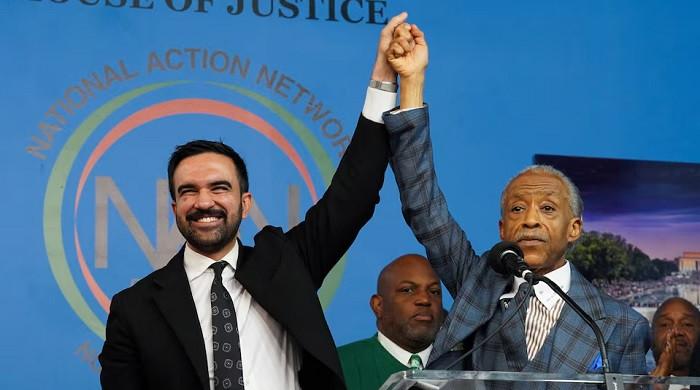- The democratic socialist defeats Cuomo on a progressive platform.
- At 34, he became the first Muslim mayor of the largest American city.
- Spanberger becomes Virginia’s first female governor.
Zohran Mamdani, a 34-year-old democratic socialist, won New York’s mayoral race on Tuesday, capping a meteoric rise from a little-known state lawmaker to one of the country’s most visible Democratic figures.
Mamdani will become the first Muslim mayor of America’s largest city. He defeated former Democratic Gov. Andrew Cuomo, 67, who ran as an independent after losing the nomination to Mamdani in the primary election.
The campaign served as an ideological and generational contest that could have national implications for the Democratic Party.
In Virginia, Democrat Abigail Spanberger easily won the gubernatorial election, becoming the first woman elected to the office. And in New Jersey, Democrat Mikie Sherrill won the gubernatorial race.
The trio of races offered the beleaguered Democratic Party a test of different campaign platforms a year before the 2026 midterm elections, when control of Congress will be at stake. Since President Donald Trump’s victory last year, Democrats have found themselves locked out of power in Washington and struggling to find the best path out of the political wilderness.
All three candidates emphasized economic issues, particularly affordability. But both Spanberger and Sherrill hail from the moderate wing of the party, while Mamdani campaigned as an unapologetic progressive and spokesperson for the new generation.
Spanberger, who defeated Republican Lt. Gov. Winsome Earle-Sears, will succeed outgoing Republican Gov. Glenn Youngkin.
Both Sherrill and Spanberger had sought to tie their opponents to Trump in an effort to exploit Democratic and independent voters’ frustration with his chaotic nine months in office.
“We sent the message to the world that in 2025, Virginia chose pragmatism over partisanship,” Spanberger said in his victory speech. “We chose our Commonwealth over chaos.”
Trump gave water to both candidates at a late stage in the current government shutdown.
His administration has threatened to lay off federal workers — a move that will have an outsized impact on Virginia, a state adjacent to Washington and home to many government employees. He also froze billions of dollars in funding for a new rail tunnel across the Hudson River, a critical project for New Jersey’s large commuter population.
In interviews at Virginia polling places on Tuesday, some voters said Trump’s most controversial policies were on their minds, including his efforts to deport immigrants who entered the United States illegally and to impose costly tariffs on imports of foreign goods, the legality of which is being scrutinized by the United States. Supreme Court this week.
Juan Benitez, a self-proclaimed independent, was voting for the first time. The 25-year-old restaurant manager has supported every Democratic candidate in Virginia because of his opposition to Trump’s immigration policies and the federal government shutdown, which he blamed on Trump.
High electoral participation
In California, voters had to decide whether to give Democratic lawmakers the power to redraw the state’s congressional map, widening the national battle over redistricting that could determine which party controls the House of Representatives after next year’s midterm elections. Trump on social media called the vote a scam, suggesting the vote was rigged without providing evidence.
Participation appeared high across the board.
In New York, more than 2 million ballots, including early voting, were cast, according to the Board of Elections, the most in a mayoral race since 1969. Early vote totals in Virginia and New Jersey also exceeded the previous 2021 elections.
In New York, Mamdani proposed ambitious left-wing policies, including freezing rents for nearly a million apartments and making city buses free.
Although Tuesday’s results will provide a glimpse into the mood of American voters, the midterm elections are a year away, an eternity in politics.
“There’s nothing going to happen in Virginia or New Jersey that can tell us much about what’s going to happen in a congressional district in Missouri or a Senate race in Maine,” said Douglas Heye, a Republican strategist.
For Republicans, Tuesday’s election was a test of whether the voters who helped bring Trump to victory in 2024 will still turn out when he’s not on the ballot.
But Ciattarelli and Earle-Sears, each running in Democratic-leaning states, faced a dilemma: Criticizing Trump risked losing his supporters, but supporting him too closely could have alienated moderate and independent voters who disapprove of his policies.
Trump remains unpopular: 57% of Americans disapprove of his professional performance, according to a Reuters/Ipsos poll. But Democrats aren’t gaining support as a result, with respondents evenly split on whether they would favor Democrats or Republicans in 2026.




